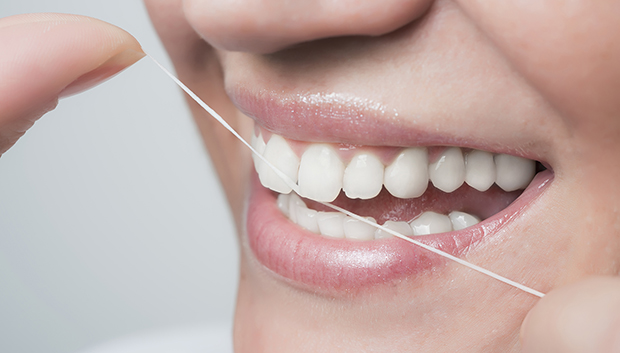Yes, You Should Floss and Here’s Why
Flossing should be a part of your everyday oral health, these are just a few reasons why.

The world of dentistry has come a long way over the years. Take, for example, the folks in medieval times, who, according to one account, thought cavities were caused by little worms burrowing through teeth. They then assumed the worms would hide in crevices and later come out to mine more, causing toothaches.
Today we know better, and although worms aren’t making tunnels in our teeth, extra food, plaque, and bacteria can lead to serious pain and problems if they are not properly addressed. There are three main ways to take care of your mouth: brushing, flossing, and using mouthwash.
Our focus will be on flossing. Are you the type of person who flosses often, or the type that tries to fit six months of flossing into five minutes prior to your dentist appointment that day? Flossing is one of those things that isn’t convenient—or comfortable for that matter—but can potentially pay big dividends.
How many Americans actually floss?
According to a American Dental Association (ADA) study, it was reported that as few as 10 percent of Americans floss daily and women tend to floss more often than men. Interestingly enough, the survey showed correlation between flossing and good oral health.
The flossing test
Here’s a quick, surefire way to put flossing to the test that doesn’t require any focus groups, weeks of experiments, or subjects other than yourself. First, brush your teeth so that you have that sparkly fresh feeling—the one where you feel fresh enough to go to bed and not think about oral hygiene again until you wake up.
Next, go floss your teeth, using an up-and-down motion, forming a c-shape around the edges of your teeth. Be careful not to hurt your gums by pushing too hard. This video from the ADA shows proper flossing technique.
Are you surprised how much your toothbrush missed? Nobody wants that extra gunk in their mouth all night.
Related: 6 Things You Do That Are Destroying Your Teeth
The known benefits of flossing
Anyone who flosses can clearly see that it dislodges food a toothbrush commonly misses, and it removes excess plaque when proper technique is used. What isn’t commonly seen is that when you don’t floss, the extra food, plaque, and bacteria can harden into tartar, which may cause tooth decay and gum disease over time.
Many dentists recommend flossing daily. Along with brushing and flossing daily, don’t forget to visit your dentist regularly (about every six months) for checkups.
